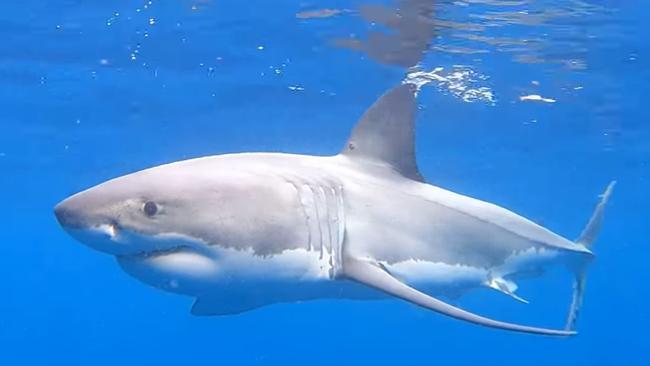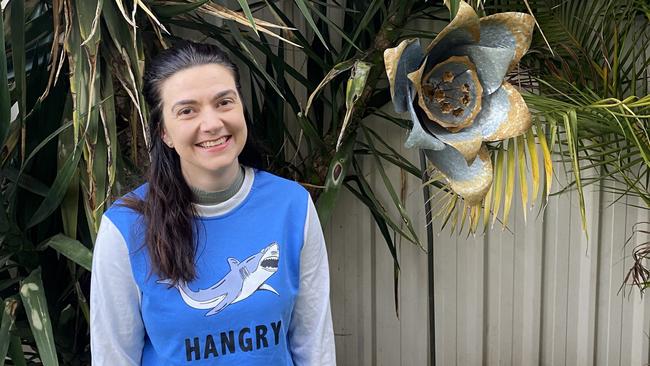Experts call for rebates for deterrents and increased funding for research following shark attacks at SA beaches
Subsidies for personal electronic deterrents, artificial intelligence drones and more funding for research are among the best ways to reduce the risk of shark attacks, experts say.
SA News
Don't miss out on the headlines from SA News. Followed categories will be added to My News.
Subsidies for personal electronic deterrents, artificial intelligence drones and more funding for research are among the best ways to reduce the risk of shark attacks, experts say.
They claim the government needs to assess all available options to determine which would work best on South Australia’s coastline to protect the state’s swimmers, surfers and divers.
Researcher Andrew Fox, the son of shark attack survivor and expert Rodney Fox, said all the shark bite mitigation methods had pros and cons.
Mr Fox said the SA government could encourage surfers and divers in particular to buy electronic shark deterrents by subsidising their purchase, like the $200 rebate available in WA.
“Electric shark repellents and the bite-resistant wetsuits are measurably effective and people can make a personal decision to wear them,” Mr Fox said.
“The government can subsidise those to make them more available.”
Netting was both “impractical” and ineffective, Mr Fox said.

The five shark attacks in SA this year – including three since the start of October – were spaced along the coast, from three surfer fatalities at Elliston, Ethel Beach, and near Streaky Bay in the west, to bites at suburban Port Noarlunga and Beachport in the south.
Mr Fox said communities often looked for “kneejerk solutions” when a small cluster of shark attack events occurred.
“They are extremely rare events, so when you get a little cluster, there’s all of a sudden 200 or 300 per cent more attacks in a time period. But that’s not unusual, it goes right back.”
Uni SA shark researcher Dr Brianna Le Busque said tagged shark movements were not yet monitored in real time and only represented a very small proportion of the shark population.
Ocean receivers would need to be placed only hundreds of metres apart and able to transmit shark information immediately to satellites, rather than being periodically downloaded.
“The plan with tagging is to have beacons … but it’s definitely not a quick fix approach,” she said.
Drones were a more affordable alternative to fixed wing aircraft, and AI programs to identify sharks were improving but still required human monitoring.

“It’s definitely an efficient and affordable approach that can afford protection by identifying that there’s a big shark near swimmers,” Dr Le Brusque said.
Surf Life Saving SA currently has 15 drones that are operated by accredited volunteers and are part of the new Geographic Information System software, which allows real-time tracking at the State Operations Centre.
Fixed wing aircraft surveillance – which was brought forward on Adelaide’s suburban and southern beaches by two weeks after the latest attack – remained one of the most effective methods.
“Conservationists and researchers think that we should keep using it as well,” Dr Le Brusque said.
Dr Le Busque also said research showed nets were ineffective, as sharks could go around or below them, and more rigid barriers could only protect very small sections of beach.
Both advocated more research into sharks and their behaviours.
“The more we know about them, the more we will be able to understand the reasons why they come close to coastlines at certain times of the year,” Dr Le Busque said.




